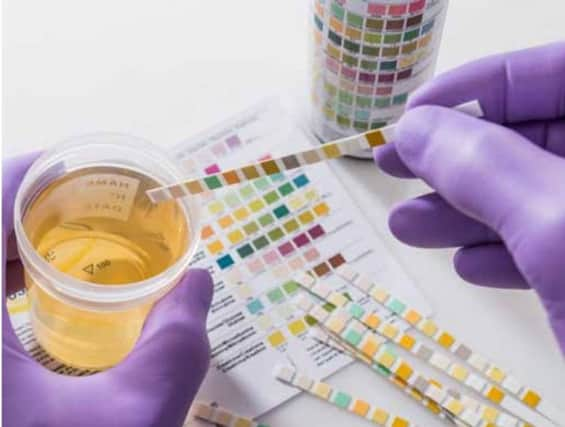Revolutionary new prostate cancer test can be used at home


Experts hope to revolutionise diagnosis of the disease and create an at-home collection kit. The test is much more sensitive than current methods, picking up how aggressive the disease is and at what point men will need treatment.
It is used for men suspected of having cancer and can work out which men have aggressive or intermediate levels of the disease, as well as ruling out those who do not have prostate cancer.
Advertisement
Hide AdAdvertisement
Hide AdThe test cuts down the need for a barrage of other procedures, including biopsies, blood tests, an examination known as a digital rectal examination or an MRI scan.
It is also suitable for men already diagnosed with low risk disease who are on a “watch and wait” approach known as active surveillance.
For these men, the test could cut follow-up appointments from once every year to once every two to three years.
Experts behind the Prostate Urine Risk test, from the University of East Anglia and the Norfolk and Norwich University Hospital, say they have now developed the test further so urine samples can be collected at home.
This means men do not have to go into the clinic to provide a urine sample or to undergo a rectal exam.
They say this is an important step, because the first urine of the day provides biomarker levels from the prostate that are much higher and more consistent than at other times.
Lead researcher Dr Jeremy Clark, from UEA’s Norwich Medical School, said: “The PUR test looks at gene expression in urine samples and provides vital information about whether a cancer is aggressive or ‘low risk’.
“Being able to simply provide a urine sample at home and post a sample off for analysis could really revolutionise diagnosis. It means that men would not have to undergo a digital rectal examination, so it would be much less stressful and should result in a lot more patients being tested.”
Advertisement
Hide AdAdvertisement
Hide AdAs part of a small study, the researchers gave 14 men at-home collection kits and compared the results of their morning-time home urine samples with samples collected after a digital rectal examination.
Dr Clark said: “We found that urine samples taken at home showed the biomarkers for prostate cancer much more clearly than after a rectal examination. And feedback from the participants showed that the at-home test was preferable.”